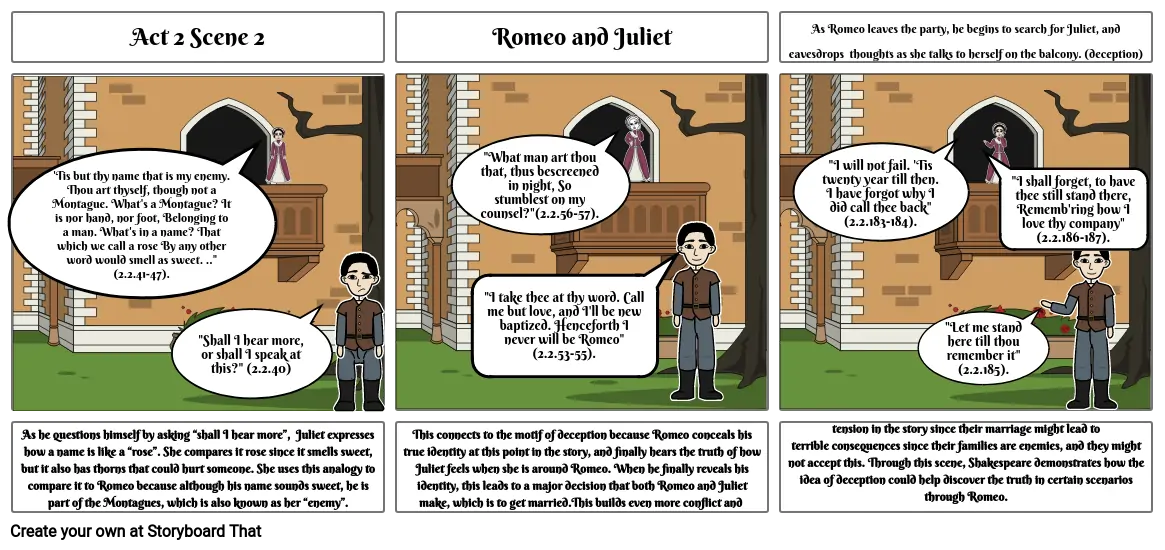Romeo and Juliet storyboard 1

Kuvakäsikirjoitus Teksti
- 'Tis but thy name that is my enemy. Thou art thyself, though not a Montague. What's a Montague? It is nor hand, nor foot, Belonging to a man. What's in a name? That which we call a rose By any other word would smell as sweet. .." (2.2.41-47).
- Act 2 Scene 2
- "Shall I hear more, or shall I speak at this?" (2.2.40)
- Romeo and Juliet
- "What man art thou that, thus bescreened in night, So stumblest on my counsel?"(2.2.56-57).
- "I take thee at thy word. Call me but love, and I'll be new baptized. Henceforth I never will be Romeo" (2.2.53-55).
- As Romeo leaves the party, he begins to search for Juliet, and eavesdrops thoughts as she talks to herself on the balcony. (deception)
- "I will not fail. 'Tis twenty year till then. I have forgot why I did call thee back"(2.2.183-184).
- "Let me stand here till thou remember it" (2.2.185).
- "I shall forget, to have thee still stand there, Rememb'ring how I love thy company" (2.2.186-187).
- As he questions himself by asking “shall I hear more”, Juliet expresses how a name is like a “rose”. She compares it rose since it smells sweet, but it also has thorns that could hurt someone. She uses this analogy to compare it to Romeo because although his name sounds sweet, he is part of the Montagues, which is also known as her “enemy”.
- This connects to the motif of deception because Romeo conceals his true identity at this point in the story, and finally hears the truth of how Juliet feels when she is around Romeo. When he finally reveals his identity, this leads to a major decision that both Romeo and Juliet make, which is to get married.This builds even more conflict and
- tension in the story since their marriage might lead to terrible consequences since their families are enemies, and they might not accept this. Through this scene, Shakespeare demonstrates how the idea of deception could help discover the truth in certain scenarios through Romeo.
Yli 30 miljoonaa kuvakäsikirjoitusta luotu

